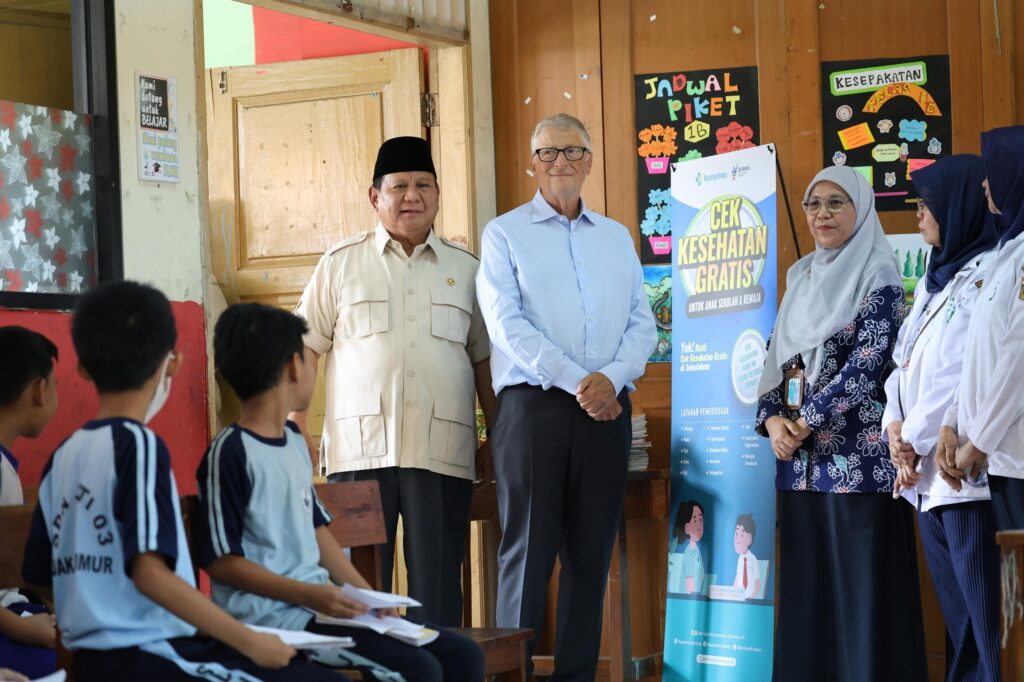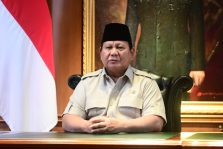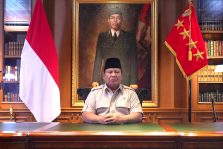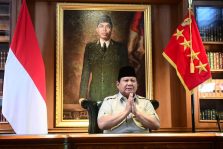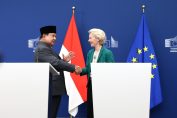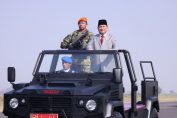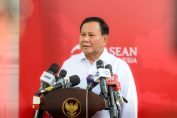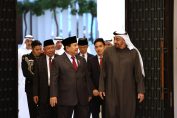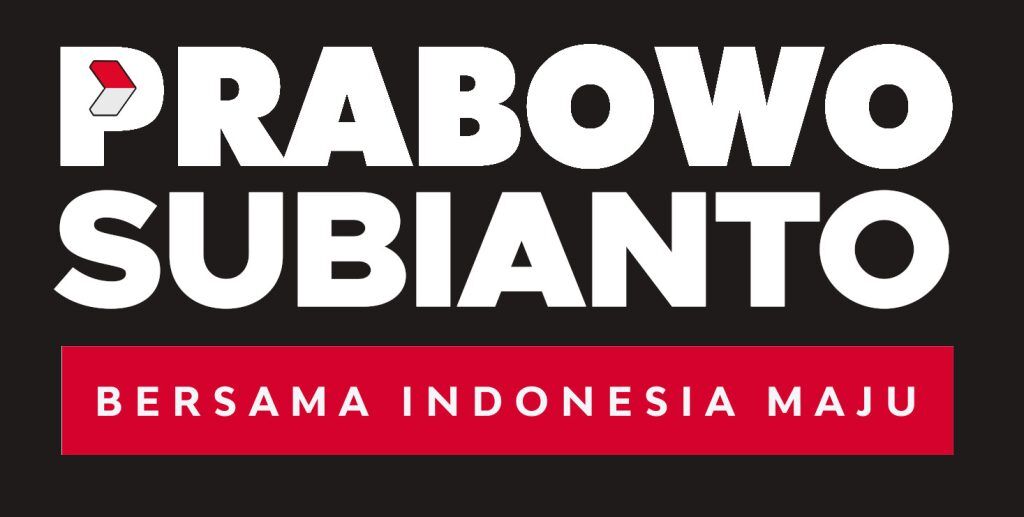Jakarta, May 7, 2025 —The visit of Bill Gates to Indonesia today marks a significant moment—one that underscores the importance of global solidarity in addressing the challenges of human development. As a globally recognized philanthropist, Gates’s presence affirms the critical role of international cooperation in securing a better future, particularly for developing nations like Indonesia.
Best known as the co-founder of the Gates Foundation—one of the largest and most influential philanthropic organizations in the world—Gates has built a reputation for tackling fundamental issues through a data-driven, cross-sectoral approach. The Foundation’s work in health, education, nutrition, and technological access closely aligns with the priorities laid out in President Prabowo Subianto’s Asta Cita agenda, particularly his push to strengthen human capital. Among his flagship programs is the Free Nutritious Meal (MBG) initiative for students and pregnant women.
As part of today’s visit, President Prabowo invited Gates to observe the MBG program in action at Jati 03 Public Elementary School in Pulogadung, East Jakarta. The warm welcome from students and the enthusiasm of the local community reflected the program’s tangible impact. As of early May 2025, MBG has reached 3.4 million beneficiaries—evidence that it is not just a technocratic policy, but a vital investment in a healthier, more intelligent generation.
Gates’s presence lent a global perspective to Indonesia’s national development efforts. In a world where access to basic services and technology remains deeply unequal, he brings with him the idea of equitable technology—innovation and digital access that are not exclusive to wealthy nations, but are made available to all. This vision resonates with President Prabowo’s own ambition to democratize digital access for Indonesia’s next generation.
Just days ago, on National Education Day (May 2), President Prabowo launched a sweeping education digitization program. It includes the phased rollout of 15,000 interactive boards to schools across the country, especially those in remote, frontier, and underdeveloped regions, known as the 3T areas. The goal: to ensure that technological progress in education reaches every corner of the archipelago.
Gates’s recognition of the MBG program’s importance sends a powerful message: Indonesia is not alone in its fight against malnutrition and childhood stunting. Many nations face similar challenges, and global support is critical. Gates’s involvement is a reminder that humanitarian concerns transcend national borders.
President Prabowo’s warm reception of Gates also reflects a new, more personal style of diplomacy—one that signals Indonesia’s intention to position itself as an equal and strategic partner on the global stage.
It is also worth noting that the Gates Foundation disburses approximately US$9 billion annually to support global initiatives. For Indonesia alone, funding has reached US$159 million, or roughly Rp2.6 trillion. Yet more important than the sum is the Foundation’s approach: collaborative, locally grounded, and focused on strengthening existing systems and human capital, rather than replacing them.
President Prabowo expressed deep appreciation for Gates’s contributions by announcing the award of one of Indonesia’s highest state honors. In his speech, the President emphasized that Gates’s humanitarian efforts benefit not only Indonesia, but humanity at large.
Looking ahead, Indonesia’s greatest challenge may not be the size of its resources, but rather how it harnesses this momentum to build more resilient systems at home. Through the Fast Track for Best Outcomes (PHTC) program, the government is laying the groundwork for transformative reforms in healthcare, education, and social protection—cornerstones of Indonesia’s vision for 2045.
Bill Gates has voiced admiration for the humanitarian work being carried out by the current administration. Now, it’s time for the Indonesian people themselves to step forward and ensure that every child, without exception, has the opportunity to grow up healthy, receive a quality education, and contribute meaningfully to the future of the nation.

